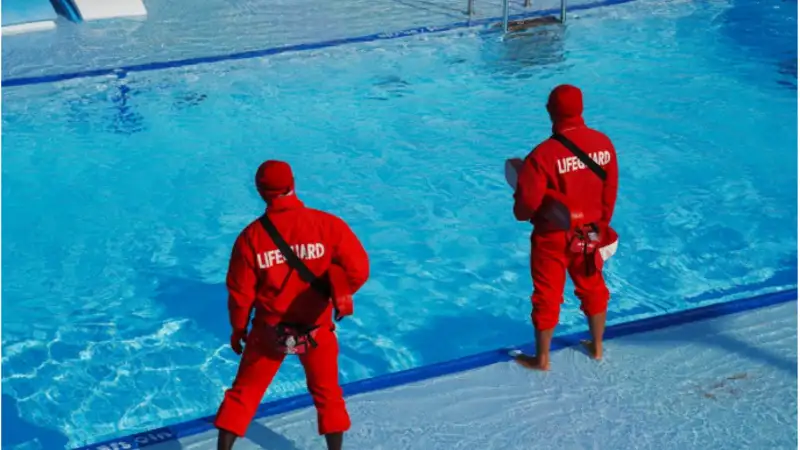Water safety poses a crucial prerequisite for public health, and safeguarding lifeguards ensures the health of swimmers in all water parks, beaches, and swimming pools. Given that there are just a handful of skilled lifeguards across the country, it must be a good time to consider choosing this area for a profession. Whether you choose a seasonal or a permanent position, opportunities abound for lifeguarding in enhancing personal growth, acquiring skills, and giving back to society.
In this essay, we shall show different options that a candidate might have with respect to a career in water safety, stressing the need for lifeguard courses and lifeguard training, including how organizations such as the American Lifeguard Association (ALA) are working to help elevate lifeguarding to a respected profession.
Why choose a career in water safety?
The professional growth one gains in leadership, emergency response skills, and physical fitness from lifeguarding goes far beyond a summer job. With so many organizations struggling to recruit staff, there is a high demand for a lifeguard. Many organizations are providing better benefits, higher pay, and greater bonuses to recruits due to the shortage of lifeguards.
In addition, lifeguarding also affords the practical experience for individuals who may be looking to enter a career in firefighting, law enforcement, public safety or emergency medical services (EMS). The skills gained from lifeguard training including CPR, first aid, rescue procedures can be transferred to many other professions as well.
Water Safety Career Paths
Many job chances beyond basic pool or beach lifeguarding become available with a lifeguard certification. The following are some of the most well-travelled routes:
-
Swimming and Beach Lifeguarding
When you start as a lifeguard, the first place to start is the local pools. Seasonal positions are very plentiful, yet several companies today provide year-round employment with respectable remuneration.
-
Lifeguarding at a waterpark
Lifeguarding is a job that needs quick decision-making and vigilant presence at the pools and beaches. The water parks are the commonly favorite amongst children and adults, with children in the summer months, lifeguards should be more alert when lifeguarding. These positions sometimes come with greater levels of responsibility and further instruction.
-
Aquatic Facilities Management
Experienced lifeguards can move up to supervisory positions like aquatic manager or head lifeguard. These jobs include managing staff, scheduling, and guaranteeing compliance with safety standards.
-
Firefighting and Emergency Medical Services (EMS)
The medical training gained from lifeguard classes sets a solid basis for jobs in firefighting or EMS. Using their expertise in emergency response, many lifeguards move into these sectors.
- Swimming Coaching and Instruction
Certified lifeguards sometimes turn into swim instructors, instructing adults and youngsters basic swimming abilities. Some go into competitive coaching, assisting clubs or school swim teams.
-
Cruise Ship and Resort Lifeguarding
For travellers, lifeguarding on cruise ships or at opulent hotels provides an interesting approach to mix work and travel. Often including extra benefits like free lodging and travel possibilities, these positions are
-
Searching and rescue; public safety
In emergencies, advanced lifeguards could work with law enforcement or coast guard agencies to conduct open-water rescues as members of search and rescue squads.
The Advocacy for Lifeguards
Water safety is a crucial thing, especially in the summer months when people are flocking towards the beaches and pools. One of the things in water safety that has become a major concern in recent years is the lifeguard shortage.
The ALA helps to ensure that new lifeguards are adequately prepared for their jobs by providing nationally certified lifeguard training. Their training takes actual situations into account and promotes learning by doing, so that certification can be challenging yet useful.
Steps to Beginning Your Lifeguarding Career
Here is how to begin if you want to follow a profession in water safety:
- Satisfy the Fundamental Criteria. Most lifeguard courses demand that applicants be at least 15 years old, have passable swimming ability, and possess some rudimentary physical fitness.
- Enrol in a Certified Training Program—Look for programs accredited by groups like the ALA to guarantee your certification’s general recognition.
- Take written tests, simulations of first aid, and in-water drills.
- Get Certification: Upon passing the course, you will get a lifeguard certification good for two years, together with CPR/AED and first aid certification.
- Search for jobs at neighborhood pools, beaches, waterparks, or resorts.
- Advanced training could open up more career possibilities; for example, specialist certifications like advanced open water rescue or waterfront lifeguarding.
Final Word
A career in water safety is rewarding and useful for public welfare. Joining lifeguard classes and becoming lifeguard trained is the perfect step for people who want a well-secured aspect of life with skills and opportunities to save lives.
Take the plunge if you’re ready and seek out local certification programs for becoming part of the next generation of lifeguards transforming their environments. There has never been a better moment to dive into this critical industry as groups such as the American Lifeguard Association blaze the path.
Are you thinking about taking a lifeguarding class? Let us know in the comments! For more information, visit our website.
